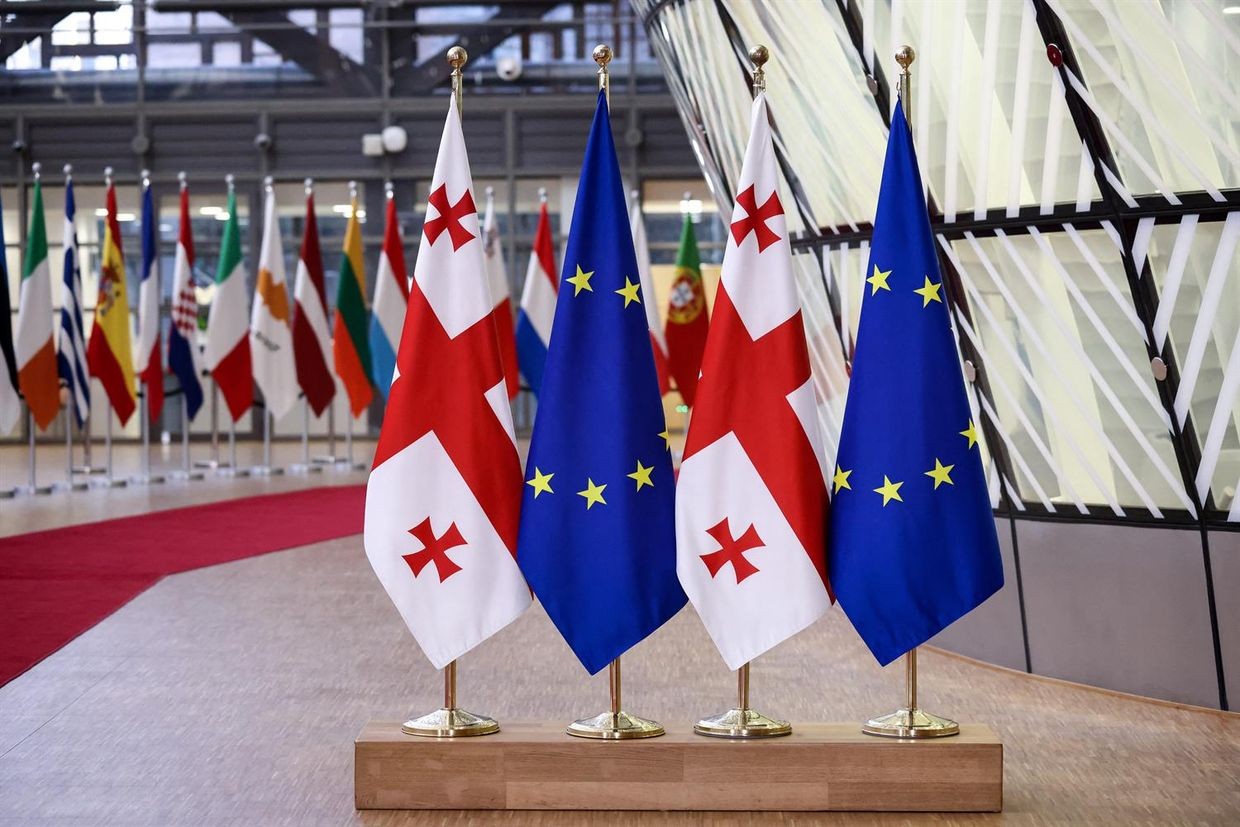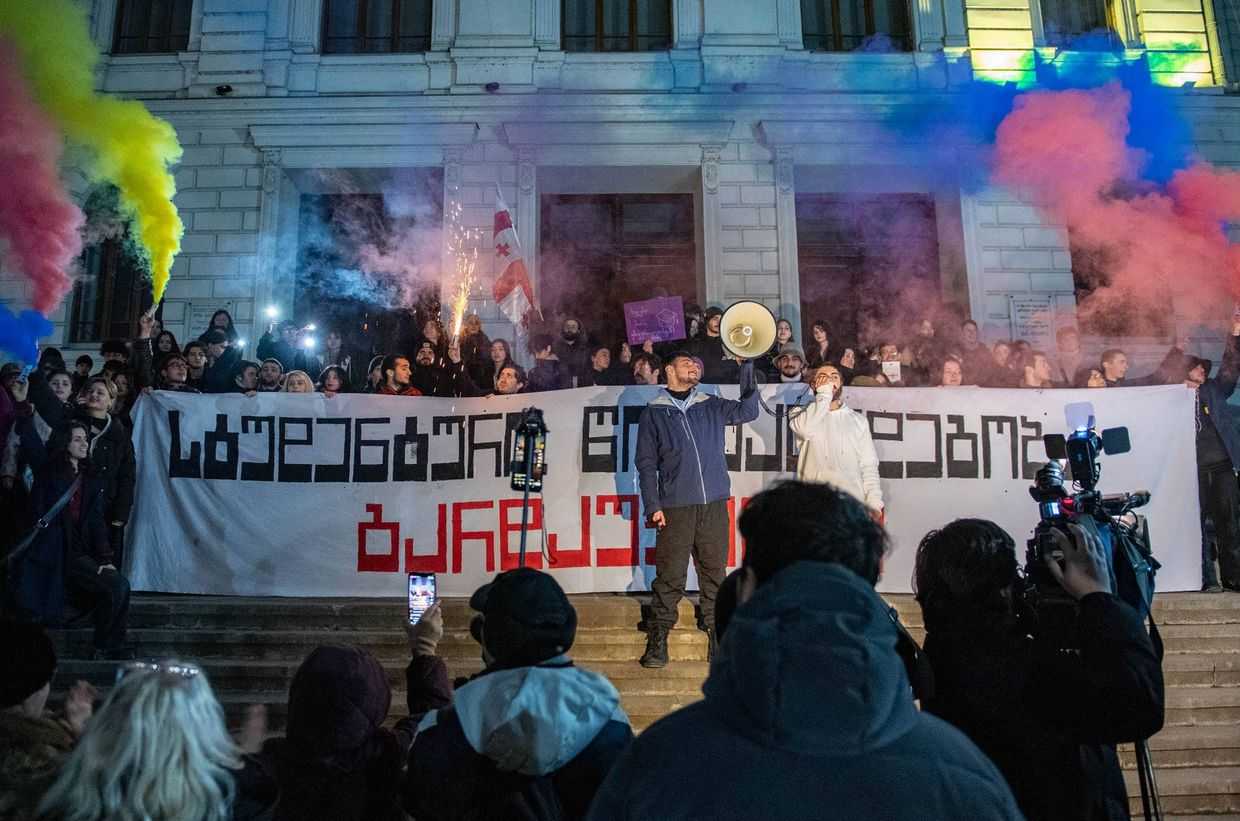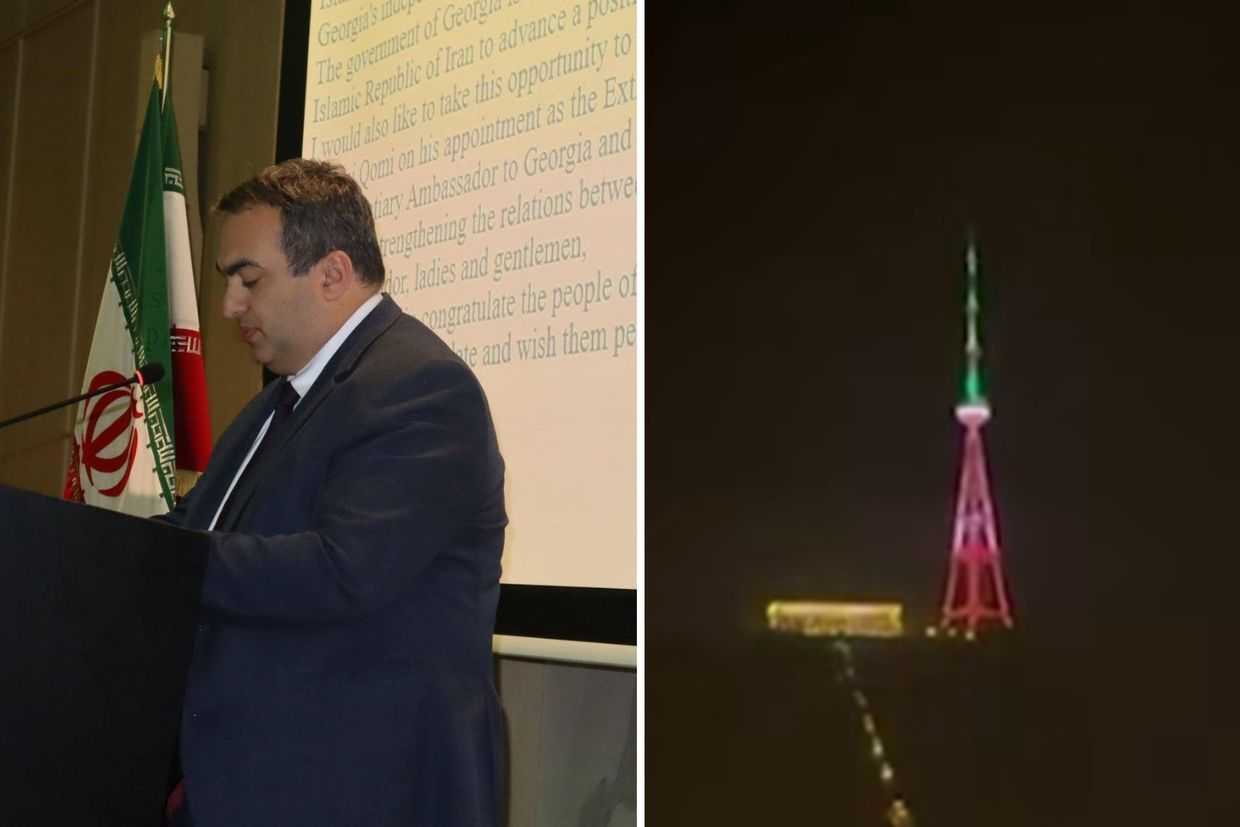
A group of foreign ministries from 17 EU countries, along with the UK and the EU’s top diplomat Kaja Kallas, have issued a joint statement strongly criticising Georgia’s democratic backsliding.
The statement was joined by the foreign ministers of the UK, Austria, Belgium, Czechia, Denmark, Estonia, Finland, France, Germany, Iceland, Ireland, Latvia, Lithuania, the Netherlands, Norway, Poland, Spain, and Sweden.
It condemned Georgia’s imprisonment of opposition leaders as a politically motivated move ‘clearly designed to stifle political opposition in Georgia, a few months ahead of the local elections’. They also criticised the ruling party’s repression of critics, representatives of civil society, peaceful protesters, and independent journalists.
‘The course of political repression carried out by the Georgian authorities has led, in reaction, to a considerable downgrading of our relationship, including reduction of assistance and cooperation with Georgian authorities’, they said. ‘Today, the authoritarian and anti-European course of the Georgian authorities further threatens Georgia’s democratic achievements and relations with our countries’.
They pledged to continue to call out Georgian Dream’s ‘undemocratic actions and violations of human rights’, adding that they will not ‘hesitate to make use of the range of unilateral and multilateral tools available to us should Georgian authorities continue to take steps that erode Georgia’s democracy and respect for human rights’.
Despite their sharp criticism of Georgian Dream, the foreign ministers concluded their statement by saying it was not ‘too late to reverse course’.
‘We call on the Georgian authorities to immediately release unjustly detained politicians, journalists and activists, to reverse repressive legislation, and to engage in a national dialogue with all relevant stakeholders to find a way out of the current situation’.
Georgian Dream dismisses criticism
Two days after the statement was published, Georgian Dream responded in kind, dismissing the sentiments and reiterating conspiracy theories and other attacks typically levied at the West.
Georgian Dream attempted to flip the script, accusing the EU and UK of suffering its own democratic backsliding and a ‘values crisis’. In line with past attacks, the ruling party also claimed that both the EU and UK are controlled by the ‘deep state’, a nebulous term that Georgian Dream often uses to describe shadowy forces that allegedly rule many governments and have tried to overthrow the Georgian government after failing to force it into war with Russia. Critics have said the theories are fantastical and bear little connection to reality.
Georgian Dream went on to complain about the statement, saying it contained ‘Soviet-style disinformation and false accusations’ and was ‘another blatant and unfair attack on Georgian people and Georgian democracy’.
The response also addressed the specifics of the EU and UK’s statement, writing off criticism of the jailing of opposition politicians as ‘disinformation’.
Keeping in line with past attempts to ingratiate itself with the administration of US President Donald Trump, Georgian Dream said that ‘we again wish Donald Trump success in this important job’ of ‘defeating the deep state’.
Trump’s position on Georgian Dream has largely remained murky since he took office in January.








![Baia Margishvili standing in central Tbilisi with a sign reading: ‘The Prosecutor’s Office [is] a punitive squad. How many more innocent people will you put in prison?’ Photo: Mariam Nikuradze/OC Media.](/_next/image/?url=https%3A%2F%2Fassets.bucket.fourthestate.app%2Foc-media-prod%2Fcontent%2Fimages%2F2026%2F02%2Fcalls-for-sanctions-and-raids-19-10-25-48.jpg&w=3840&q=50)


